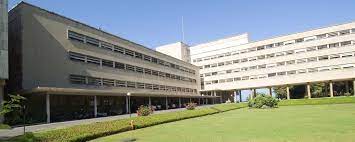
Tata Institute of Fundamental Research

About Institute
The Tata Institute of Fundamental Research (TIFR) is a research institution based in Mumbai, India. It was founded in 1945 by the famous Indian physicist Homi Bhabha with the support of the Tata Trusts. The institute is dedicated to research in fundamental sciences such as mathematics, physics, chemistry, biology, computer science, and interdisciplinary fields. It has been recognized as a Deemed University by the University Grants Commission (UGC).
TIFR has played a significant role in the development of science and technology in India. Its research activities have led to groundbreaking discoveries in various fields of science. For example, TIFR scientists discovered cosmic microwave background radiation, which is considered the strongest evidence for the Big Bang theory. The institute also played a key role in the discovery of the Higgs Boson particle, which was awarded the Nobel Prize in Physics in 2013.
TIFR has several research departments, including the Department of Astronomy and Astrophysics, Department of Biological Sciences, Department of Chemical Sciences, Department of Computer Science and Automation, Department of Mathematics, and Department of Physics. These departments conduct research in a wide range of areas, from theoretical physics to molecular biology.
In addition to research, TIFR also offers postgraduate and doctoral programs in various fields of science. The institute has a highly competitive selection process for its programs, and students are selected based on their academic achievements and potential for research.
TIFR has a strong focus on interdisciplinary research, and several centres have been established to promote collaborations between different research areas. For example, the National Centre for Biological Sciences (NCBS) is a centre for research in biology and neuroscience, and the International Centre for Theoretical Sciences (ICTS) focuses on theoretical physics, mathematics, and computer science.
Overall, TIFR is a world-class research institution that has made significant contributions to fundamental sciences. Its focus on interdisciplinary research, high-quality faculty, and state-of-the-art facilities make it a great place for researchers and students who are passionate about science.
Institute Facilities
- Air Conditioner
- Biology Lab
- Book Store
- CCTV Surveillance
- Canteen
- Chemistry Lab
- Crash Courses
- Computer Lab
- Hostel
- ICT Lab
- Library
- Mathematics Lab
- Medical Facility
- Online Fee Facility
- Parking
- Physics Lab
- Practical Lab
- R.O Water
- Robotic Lab
- Security Guards
- Smart Class
- Smart Mobile App
- Swimming Pool
- Toilets




